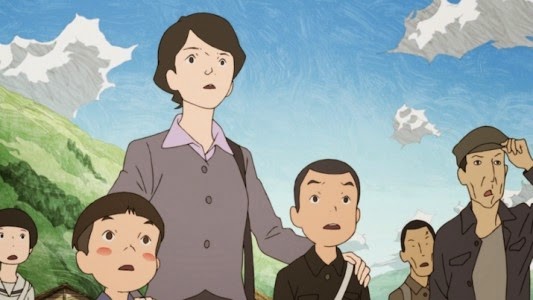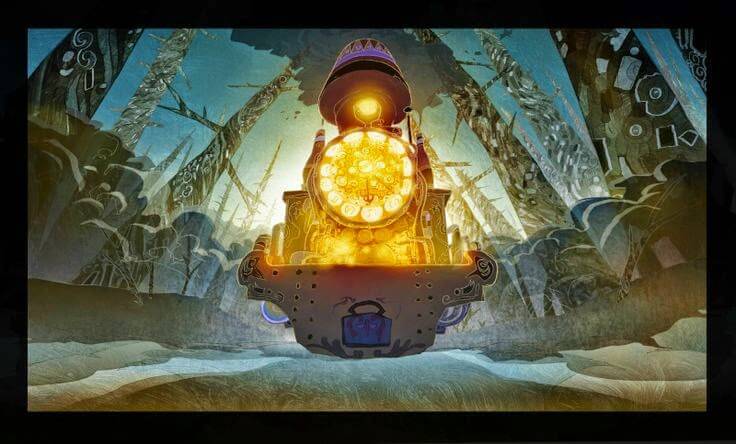It is this ability to escape into realms of our own creation which make helps us to endure the sadness in a universe around us which we cannot control - our imagination is perhaps the best survival instinct we, as a species, have developed.
It is here, a hinterland situated between grim reality and ornate fantasy, in which we meet 11 year old Junpei - a resident of the idyllic Japanese island of Shikotan. His life, of endless play with his younger brother Kanta, of laconic melody, of stealing puffin eggs, of abandon only children truly know, is infinitely altered when his existence is punctured by the adult world in the most incomprehensible of ways.
Outside of Junpei's sheltered world of whimsy and exploration, Japan has been defeated in the Second World War and Russia has laid claim to ownership of Shikotan - they soon arrive, fleets of armed soldiers, to occupy the island their nation has claimed in the aftermath of the greatest human suffering the world had known.
Junpei, who retreats into dreams inspired by his favourite book - Kenji Miyazawa's "Night on the Galactic Railroad" - witnesses the humiliation of his parents and neighbours at the hands of the Russians who take their homes and dignity too.
Yet, even as dark clouds appear in his world, life must go on and Junpei begins to notice something for the first time in his life - girls, or specifically, a girl, one of the Russians. Romance grows in the darkest of places as it seems like endless days of idyllic joy may return. But adult life once again destroys this illusion - Junpei's island will no longer be his home as the Japanese are rounded up and shipped off of Shikotan and directed to a place of unspeakable sorrow. Will he ever see home again? Will he ever find his way back to his first love?
To survive his horrific ordeal, Junpei begins to dream of the Galactic Railroad more and more. Whilst this acts as a survival method for the film's protagonist, this device also allows the viewer a window into the soul of someone suffering otherwise unimaginable pain. Like Grave of the Fireflies before it, this beautifully animated tale offers an uncompromising look at humanity pushed to its most tragic extremes and, like the Studio Ghibli classic, is sure to inspire tears for generations to come.
A beautiful account of childhood, the joys of being young, and the ecstasy of discovering love, Mizuho Nishikubo's movie painfully shows us life at its most blissful and its most traumatic too - the promise of what could be clashing with the brutal truth. Giovanni's Island is a sad fable about the harshest life imaginable but it also inspires in us hope - no matter how cruel the world is, hope dies last. And who knows what hopes, dreams and joys we can find in the pale dusks of fantasy? And, perhaps, if we dream for long enough our dreams really will come true.
A bittersweet, beautifully rendered animation, soaked in pathos, Nishikubo's movie is a must see for those in love with love and the incredible power of the imagination.



No comments
Post a Comment